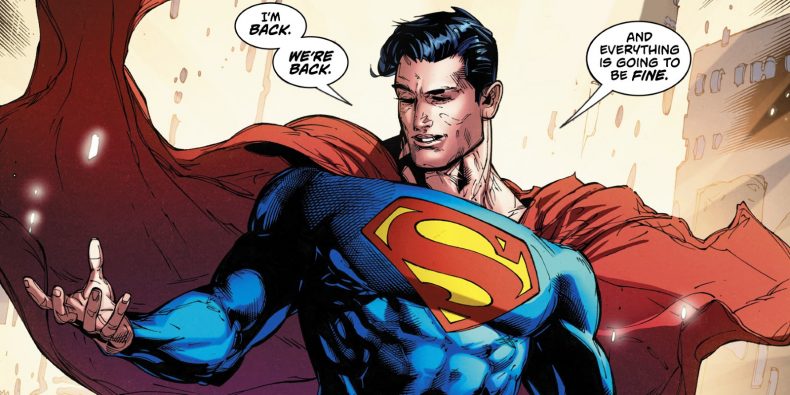To say that the DCEU has been disappointing is… Sort of an understatement. Some people really like Man of Steel, Batman V Superman and Suicide Squad, and that’s fine, we’ve all got subjective tastes and like what we like (I, for example, am an avid fan of the Ben Affleck Daredevil movie and will defend it to death). But they’re not good movies. Batman is a psychotic murderer living in a world where the Joker won, Superman is dark, gloomy and unsure of himself, and anything that could’ve gone wrong with Suicide Squad went wrong. And sure, reviews and reactions to Wonder Woman have been pretty positive, but one really has to wonder how much of that is due to the movie’s own qualities and how much is owed to the fact that the public is finally happy to see a DC movie that approaches Marvel’s steady level of quality, and one starring a beloved female superhero, no less. The future of the DCEU is also uncertain – not counting Wonder Woman, Warner Bros have sixteen different DC movies in development, after releasing only four. In comparison, Marvel have currently announced that they’re working on 8 different superhero movies (not counting Spider-Man: Homecoming, which releases next month, but counting its sequel) – twice as few, even though they’ve got a far more proven record with sixteen releases as opposed to Warner Bros’ four.
But the thing is, you can kind of see why that’s happening. Instead of paving their own way through the cinematic landscape the way Marvel and Disney did, Warner Bros and DC wish to merely copy their direct competitor. Marvel have lots of movies in a shared universe? Then we’ll have lots of movies in a shared universe! Marvel unites its heroes in crossovers and ensemble flicks? Then we’ll unite our heroes in crossovers and ensemble flicks! But the problem with that comes from the fact that Warner Bros are only copying Marvel on the most shallow of levels, the most basic surface. They’re copying their competitor’s business model without realizing that this isn’t what’s making Marvel movies successful. Of course, Warner Bros aren’t alone in this – everyone and their mother has been launching their own cinematic universes, ranging from mildly interesting (like Universal’s Monsterverse, with King Kong and Godzilla) to downright mind-boggling (Sony’s Spider-Man-less Spider-Man Cinematic Universe). And yet most of these studios don’t realize that Marvel didn’t just magically obtain success just because of its shared universe. Sure, that helped, but first and foremost, what drew audiences in was the fact that each movie truly got the hero it was representing and manage to tell a coherent, satisfying tale starring them. Iron Man didn’t try to re-imagine Tony Stark as a drunk, washed-up hobo at the end of his rope – the movie we got represented Tony Stark exactly as he was meant to be (even if Robert Downey Jr. did play him a bit snarkier and more charismatic than he was in the comics). Captain America: The First Avenger didn’t set out to establish the Marvel Cinematic Universe or shoehorn in Loki before he could show up in The Avengers, it set out to tell us exactly who Steve Rogers is and why a man would ever go out in battle dressed as the American Flag and not as, say, a flamboyant Nightwing.
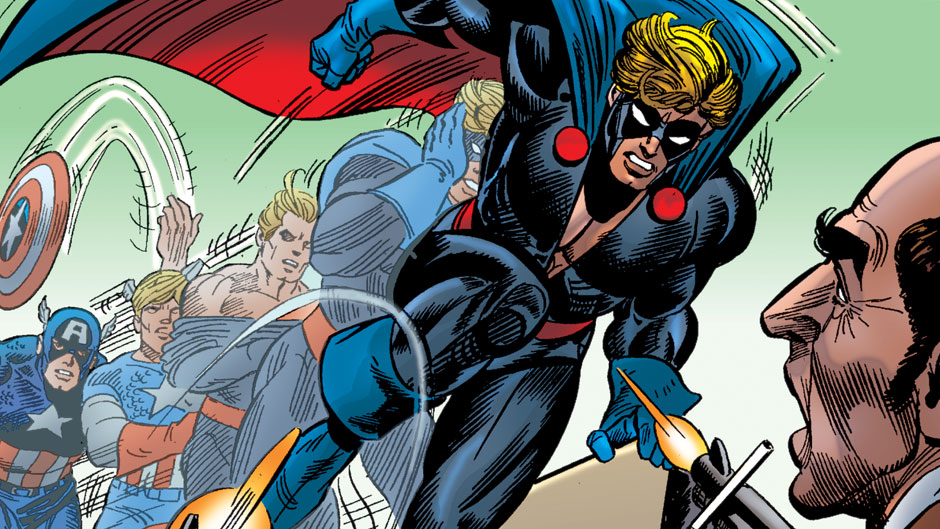
Batman V Superman didn’t do that. There’s very little ideological difference between Batman and Superman. Batman hates Superman because he’s dangerous, reckless and doesn’t answer to anybody. Superman hates Batman because he’s dangerous, reckless and doesn’t answer to anybody. Superman is portrayed as a reluctant hero, someone who isn’t certain of whether he even wants to be a hero or not. And why would he? When he was a child, his father told him that he should’ve let a bus full of his friends and schoolmates sink, killing everyone on board, rather than use his powers to rescue them. As an adult, his mother tells him that he doesn’t owe the world anything despite his abilities, which is the exact opposite message of “With great power comes great responsibility”. Superman’s solution to the government tracking his movement because they’re afraid of the dangerous alien who just leveled a city is to crash their satellites and sternly tell them to never do it again. Rather than invite the world to trust him and rely on him, Superman is repeatedly hostile to the authorities, leading to people doubting him rather than seeing him as a symbol of hope (which is ironic, considering that in the DCEU his emblem is quite literally the Kryptonian symbol for hope). Everything in Clark’s life, right up to his death at the end of Batman V Superman, has been leading him to doubt himself and those around him. Zack Snyder and Warner Bros. have attempted to create a Superman that is dark and gritty, and then further hammer him down into the ground by building a universe around this particular interpretation in the hopes of copying Marvel as quickly and as furiously as possible. And in the process, they’ve sacrificed everything that makes this character the Man of Steel, just like how they sacrificed everything that made Bruce Wayne Batman – but that’s a rant for another day.
So, for the sake of argument, let’s imagine a world where Warner Bros. has decided that their current DCEU isn’t working out, and that they’re going to reboot it all starting with a brand new Superman movie. And let’s say that I was called to be the Kevin Feige-esque figure of this new universe – not directly involved with the scriptwriting and directing, but still in charge of the movie’s tone and giving the scriptwriter and director pointers about what I need from them. These are the pointers I would give, one by one. Keep in mind, they’re all going to be really broad – you won’t see any “Lex Luthor must/mustn’t be a part of it”, because that’s ultimately up to the scriptwriter, but I will be talking a lot about how the movie should feel in order to truly capture the essence of who Superman is. All strapped in? Well, let’s get down to business!
1. Make Superman A Boy Scout
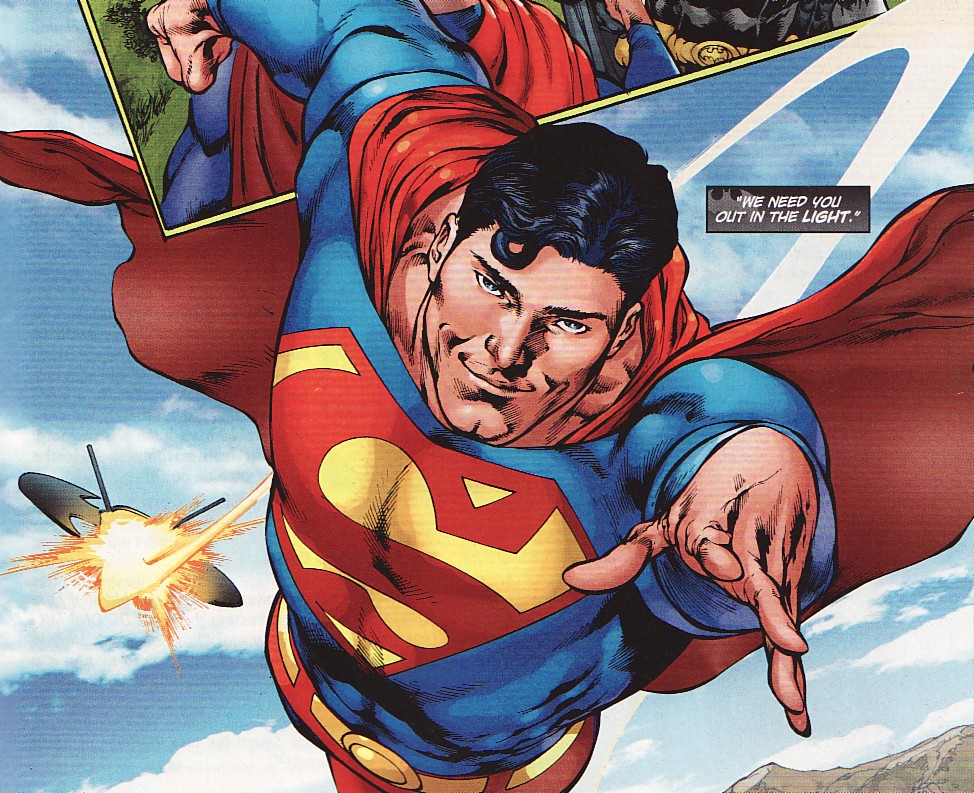
Probably the biggest mistake you can possibly make regarding a Superman movie is making it dark, gritty and hopeless – because that’s not at all what the character is about. Superman is known as the boy scout of the Justice League. When you think of the stereotype of the superhero that always shows up in various media (tights, cape, one-liners, undeniably heroic to the very core to the point of obnoxiousness), that’s Superman, or at least a simpler version of him. His closest analog in comic books is Captain America – someone who would always, ALWAYS do the right thing, no matter what he’s facing. Sure, there have been some stories set in alternate continuities like Injustice and Red Son where Superman has been downright evil, but that’s just not who he is in the mainstream comics, and that’s certainly not who we should have on screen. While Batman has always been a creature of the night one step removed from joining the freaks and villains of Arkham, Superman has never been afraid to don the underwear on the outside at any time, for any reason. Whether it’s to stop another one of Lex Luthor’s dastardly schemes, to save the Earth from an alien invasion or to merely help repair a child’s bicycle, you can always rely on Superman to be around. He is the archetypal Lawful Good. He’s not there to doubt his own abilities, or to wonder about his role on Earth. He knows exactly what his role is, and it’s to help.
Superman is really not a complicated character to figure out – in fact, one might argue he’s very one-dimensional in his morals and beliefs. He never falters, he never pulls back, he never compromises, and he always, always helps those in need. He’s the equivalent of the guy every bullied child in school dreamed they were – the kid who was bigger and stronger than everyone else, but only used his power to protect those that couldn’t protect themselves. The conflict of the movie shouldn’t come from Superman being placed in some kind of dreadful moral dilemma which ends up forever changing his values – instead, it should be about his beliefs (which many may call out as “naïve” or “outdated”) clashing with the beliefs of much more cynical people. Lex Luthor believes that humanity can’t possibly govern itself, so it needs a figurehead to guide it towards prosperity, while Superman opposes him because he believes that everybody deserves to make their own choices. Brainiac believes that information and knowledge are the most valuable resources in the Universe, while Superman thinks knowledge should never come at the cost of death and suffering. And neither of those villains are ever going to be able to change his mind, or force him to abandon his beliefs. That’s why the scene from Man of Steel in which General Zod forces Superman to kill him makes absolutely no sense for the character. Superman, as this larger than life symbol of hope, should be able to lead by example and always find a way to save EVERYONE, even if he’s forced to send the most irredeemable villains to the Phantom Zone.
2. Give Superman A Threat He Can’t Beat By Punching It
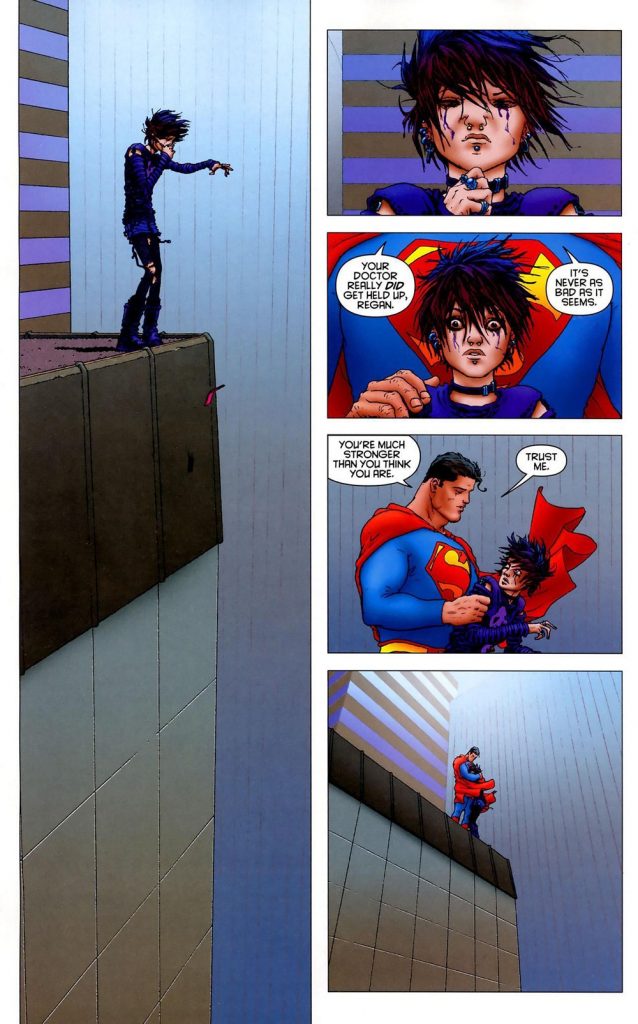
Let’s face it – Superman, in terms of his abilities, is extremely boring. Compare him to the rest of the Justice League: Batman is a normal guy who uses cunning and gadgets to outsmart his foes, Green Lantern has a ring which can construct anything he can think of, the Flash is the fastest man alive (which, as Bryan Singer has shown us, makes for some pretty amazing setpieces), while Superman can do… Basically anything. There’s really not a whole lot of baddies that can stand up to him, especially considering that his archnemesis is a bald guy with no powers. And yet, for whatever odd, inexplicable reason, a good chunk of his movies have attempted to pit him against a bad guy of equal or superior strength so that they can punch each other. Hell, General Zod (one of Superman’s most famous foes) was created SPECIFICALLY for Superman II, so that the Man of Steel would have an equal. He showed up again in Man of Steel, and its sequel gave us Doomsday (which, in this universe, is a mutated Zod). Additionally, Superman IV: The Quest for Peace gave us another original superpowered character, Nuclear Man, and Superman III gave us… Evil Superman? I don’t know, I don’t remember much of that film. Point is, the two best Superman movies, the original from 1978 and Superman Returns both faced the Man of Steel against a threat that he couldn’t just physically overpower.
But the notion isn’t exclusive to those flicks, either. Arguably the best Superman story ever written, All-Star Superman, which was also adapted into an animated movie, features a Superman who barely throws a punch despite being at the peak of his abilities. Instead, he uses his mind and his kindness to help others, whether it’s by solving an impossible riddle or by merely talking a teenage girl out of committing suicide. The ending features Lex Luthor, who uses a special serum to gain Superman’s powers for 24 hours. You’d think that the ending is gearing up towards an epic battle of brawn between Superman and his arch-nemesis, but no, all the serum does is make Luthor see the world as Superman sees it, which gives him an entirely new perspective and causes him to surrender. Superman manages to defeat his greatest foe once and for all, and all he had to do was let him enact his plan exactly as he wanted. That’s the character we need on the big screen. And sure, I’m not saying that we should have an entire movie where Superman doesn’t throw a single punch, but our cinematic Superman should certainly be very, very careful and considerate of his surroundings. He knows that he can overpower any opponent that challenges him – his problem stems from figuring out how to do it with the least amount of collateral damage. Man of Steel showed us exactly what Superman is capable of if he truly cuts loose on an enemy, and that’s something he must never, ever allow to happen. As such, the ideal Superman movie would need to find a balance between gratuitous action scenes and a protagonist who tries to solve his problems by using his head rather than his fists. It sounds impossible, but The Dark Knight has demonstrated that it can absolutely be done, with the right script and director.
3. Give Clark And His Enemies Real Stakes
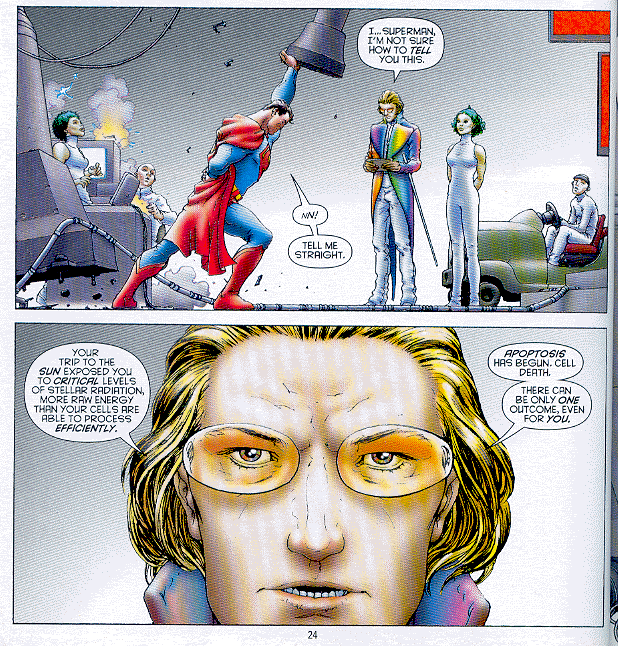
Let me ask you a question – if Superman and Batman had done absolutely nothing, what would’ve changed in Batman V Superman? If Amanda Waller didn’t try to create her Suicide Squad, what would have been different? Well, for one, both of these movies would’ve lacked any sort of conflict or meaningful stakes. Batman V Superman kicks into gear because Batman believes Superman is dangerous and attempts to threaten him, which in turn inspires Lex Luthor to blackmail Superman into fighting Batman. The Suicide Squad’s first mission is taking down a rogue member of their own team. If Batman and Waller had merely done absolutely nothing, then the status quo would have been preserved, and it would’ve just been any other day in the DC universe. That’s… Not really how a superhero movie should function, and it’s absolutely not the right call for any flick involving Superman. Heroes, by nature, don’t create conflict – they react to it, like antibodies to a virus. The Monomyth (also known as the Hero’s Journey) explains the structure of these stories very well. The hero is living a normal, ordinary life where every day is similar, until suddenly something unexpected happens which changes the status quo, raises the stakes and causes the hero to respond. It was Luke learning of the Death Star plans in his possession and finding the bodies of his family in Star Wars, or the Joker’s appearance at Bruce Wayne’s party in The Dark Knight.
The very best Superman stories – and the very best superhero stories in general – all follow this route. Superman is flying through the city, helping people, taking cats down from trees, and then all of a sudden something happens which changes everything. Maybe it’s a giant, unstoppable beast being discovered in a derelict spacecraft which starts wreaking havoc and ultimately fights the Man of Steel to their mutual demise, or perhaps a ship similar to the one that brought Clark to Earth crashes and reveals a Kryptonian girl, or maybe Superman flies too close to the sun during one of his heroic missions and absorbs a deadly dose of solar radiation, or a task to apprehend the Joker goes wrong, which leads to the deaths of Lois Lane and the entirety of Metropolis… There are endless possibilities, but the formula is always the same: Superman’s exciting, yet mundane life is interrupted by some kind of unexpected event which shakes up the status quo and raises the stakes. No matter what happens, Clark can’t possibly just ignore whatever transpired, and it has to be something so major it needs to change the world forever – otherwise why dedicate a movie to it? And on that note, while comic book movies aren’t exactly known for having recurring villains, but characters like Lex Luthor would be wasted if they were only confined to one movie. They, like the heroes, need events to shake up their status quo and keep them in constant flux. What if Lex Luthor found himself dying from Kryptonite poisoning, or the President of the United States (and let’s face it, a rich, evil businessman becoming President is SO relevant in today’s world), or goes on death row for his crimes, like in All-Star Superman? You know what, maybe Warner Bros. should just sit down and make an adaptation of All-Star Superman. That… That just might be the perfect Superman story.
Bonus: Storylines The Movies Can Take Inspiration From

As a special extra, let’s give Warner Bros a helping hand and list a couple of classic Superman stories for them which they can use to base their movies around. Keep in mind, nobody’s expecting straight adaptations, but borrowing a couple of well-placed elements from stories that have really worked in the past is definitely going to go a long way in portraying the Man of Steel properly on the silver screen.
All-Star Superman – Yeah, really surprising that this made it on here, huh? After flying too close to the sun during a rescue, Superman absorbs a deadly dose of solar radiation, which will kill him within a relatively short time. On the other hand, Lex Luthor has finally been sentenced to death for his crimes and is awaiting execution in prison. With these mortal enemies now at the very end of their lives, they struggle to settle all of their affairs before passing on. As I’ve stated above, this is the quintessential Superman story.
For The Man Who Has Everything – On Superman’s birthday, the Man of Steel finds himself infected by a parasite which gives him the perfect life he’s ever wanted for himself. Suddenly finding himself as a normal scientist on a perfectly stable Krypton living with his wife and son, Kal-El has to come to terms with the fact that this isn’t who he is, and he must do the ultimate sacrifice in order to continue being the hero Earth needs. Penned by Alan Moore, who’s written every famous graphic novel you can think of, For The Man Who Has Everything perfectly encapsulates what I absolutely want to see on-screen – Superman having to solve a problem by doing the right thing rather than by punching a bad guy in the face really hard.
What’s So Funny About Truth, Justice And The American Way? – This story might be PERFECT for a movie made in response to all those people who just don’t “get” Superman, think his ideals are outdated and prefer much more violent antiheroes as their protagonists. Superman finds himself overshadowed by a group of vigilantes calling themselves The Elite who quickly gain the approval of the public due to their more… Permanent solution to the crime problem. This causes the Man of Steel to experience a crisis of confidence, until he sees the Elite go too far and takes it upon himself to prove the world that falling into that trap is never the answer. And besides, this story features one of the few instances in which Superman truly cuts loose. It’s glorious!

